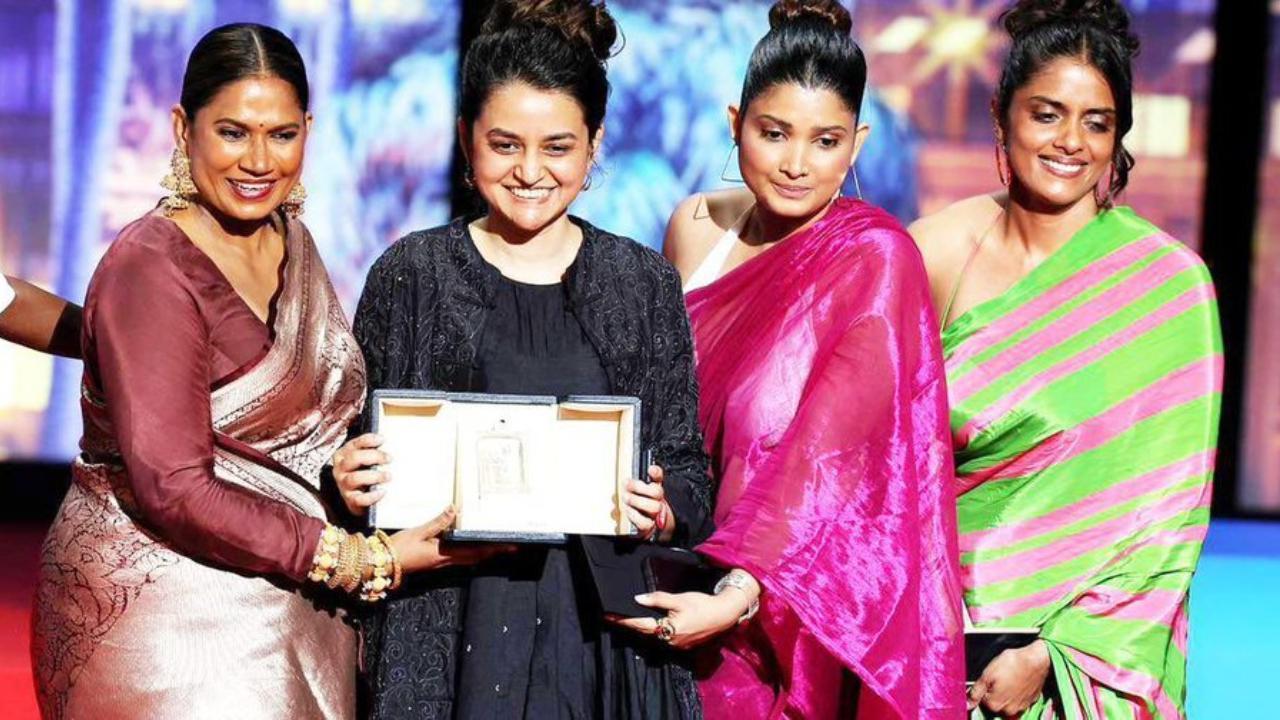
The 2024 Cannes Film Festival concluded on a historic note as Indian director Payal Kapadia’s film “All That We Imagine As Light” clinched the prestigious Grand Prix. This remarkable victory has not only brought the spotlight back on Indian cinema but has also broken a 30-year hiatus for Indian films in the main competition of this global event. Starring Kani Kusruti, Divya Prabha, and Chayya Kadam, the film is a powerful narrative on female friendship set against the vibrant yet challenging backdrop of Mumbai.
The announcement of the win was met with an outpouring of congratulatory messages from around the world. Prime Minister Narendra Modi himself acknowledged this extraordinary accomplishment. Taking to his Instagram and X, the Prime Minister congratulated the team and expressed his pride in India’s achievement on such an esteemed platform.
“India is proud of Payal Kapadia for her historic feat of winning the Grand Prix at the 77th Cannes Film Festival for her work ‘All That We Imagine As Light’. An alumnus of FTII, her remarkable talent continues to shine on the global stage, giving a glimpse of the rich creativity in India,” PM Modi wrote. He continued, “This prestigious accolade not only honors her exceptional skills but also inspires a new generation of Indian filmmakers.”
The film’s journey to the Grand Prix was marked by momentous applause and recognition. “All That We Imagine As Light” is the first Indian movie in three decades to qualify for the Palme d’Or, making Kapadia a notable contender. The film’s screening ended with an eight-minute standing ovation, one of the longest in this edition, reaffirming its impact and resonance with the audience.
In her heartfelt acceptance speech, Payal Kapadia emphasized the significance of the story behind her film. “This film is about the friendship between three different women, and often times women are pitted against each other. This is the way our society is designed and it is really unfortunate. But for me, friendship is an important relationship.
. It can lead to greater solidarity and inclusivity and empathy towards each other, which is why I feel these are the values which we should always strive for,” she expressed. Her words were met with a thunderous round of applause, underlining the emotional and cultural depth of her work.
The film’s ensemble cast and crew, including Chhaya Kadam, Hridhu Haroon, Kani Kusruti, Payal Kapadia, Divya Prabha, Ranabir Das, Julien Graff, Zico Maitra, and Thomas Hakim, graced the red carpet with stunning outfits that reflected their cultural pride and creative spirit. Their collective joy and celebrations resonated with many, as videos and pictures of them dancing and relishing their big moment quickly went viral, winning hearts far beyond Cannes.
The narrative of “All That We Imagine As Light” has been praised for its portrayal of nuanced female friendships and its exploration of societal structures that often pit women against each other. Against the rich backdrop of Mumbai, the film beautifully captures the resilience, empathy, and solidarity that come through shared experiences, transcending societal norms and expectations.
As India celebrates this historic win, it is evident that Payal Kapadia has set a new benchmark for Indian cinema on the international stage. Her work showcases the vibrant potential and rich diversity of Indian storytellers and has paved the way for upcoming filmmakers who are ready to bring fresh, bold narratives to the forefront.
The victory at Cannes is not just a win for Kapadia and her team but a triumph for Indian cinema as a whole. It signifies a renewed recognition and appreciation for the country’s unique and compelling storytelling traditions. As we revel in this moment of pride, the success of “All That We Imagine As Light” serves as an inspiration and testament to the power of cinema to bridge cultures and celebrate universal values.
Prime Minister Narendra Modi’s acknowledgment adds a layer of national pride to this achievement, emphasizing the importance of nurturing and recognizing creative talents who carry the potential to represent India on global platforms. His words reflect a collective hope that such accolades will continue to inspire and elevate the new generation of filmmakers and artists in the country.
Indeed, the historic victory at Cannes marks a new era for Indian cinema, one that promises more stories, more voices, and more moments of pride on the international stage. Payal Kapadia and her team have not only crafted a beautiful narrative but have also become torchbearers for what Indian cinema can achieve when it dares to imagine and illuminate experiences that resonate universally.












